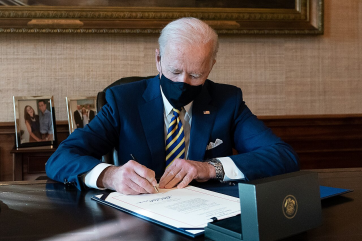The National Institute of Aging has awarded The University a $2.4 million grant to study how social interactions improve the health of older adults, school officials announced.
The five-year grant will enable researchers to provide study participants with wearable electronic devices and cell phone apps to monitor their physical activity and social interactions in real time for several days. Research has suggested that people with stronger social networks live longer and with better health than those who are more isolated in old age.
"What we don't know is why," Karen Fingerman, lead investigator for the new study and a professor in the Department of Human Development and Family Sciences and the Department of Psychology, said in a statement. "This study will examine how social engagement -- connections to family, friends and community -- mitigates potential cognitive and physical declines in late life and improves well-being."
Past research on the links between social interactions and health has been largely based on people's self-reported physical activity, cognitive activity and social interactions. Because self-reporting is often flawed, this study will compare self-evaluations with measures of physical, social and cognitive activity tracked by devices.
"It's fascinating to see what people think about themselves, versus what we can measure objectively about them," Fingerman said. "We have low self-awareness in our lives. We're going to be able to capture what's really going on with people that they may not be able to tell us."
The study will involve about 300 people over the age of 65 in the Greater Austin area, representing diverse ethnic, social and economic backgrounds.
Participants will start with a self-evaluation of physical activity and social interactions, as well as a test of cognitive abilities. Then each will wear an electronic device akin to a very high-resolution fitness tracker on their wrist that measures caloric expenditures (which correlate with overall physical activity), for several days. Through cell phone apps, they will also track social and cognitive activities.
This study will provide important insights for doctors, caregivers and families to best facilitate positive health-related behaviors in the daily lives of older adults.








